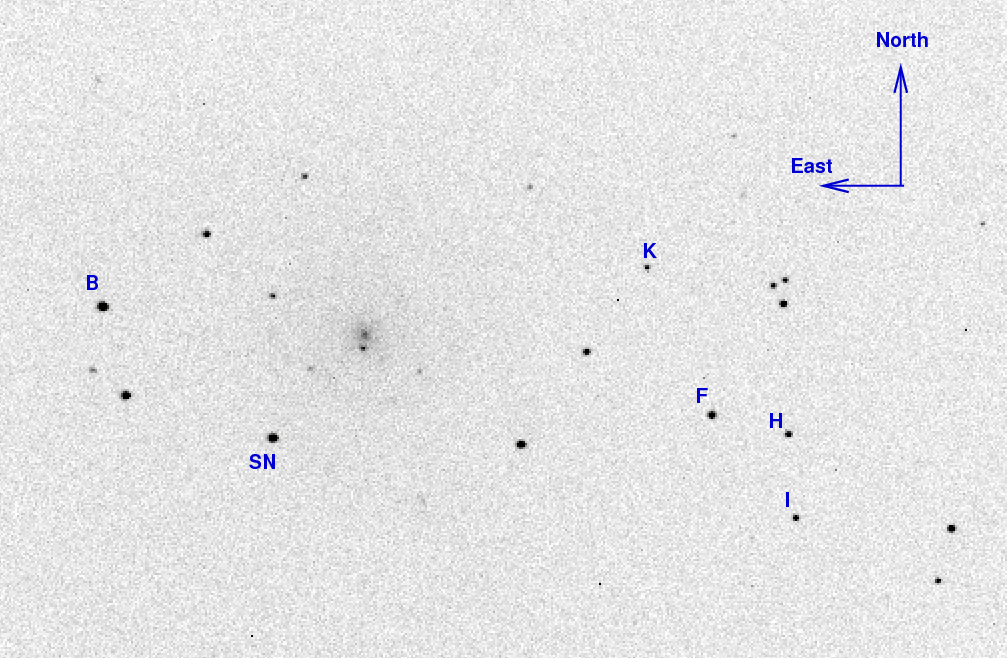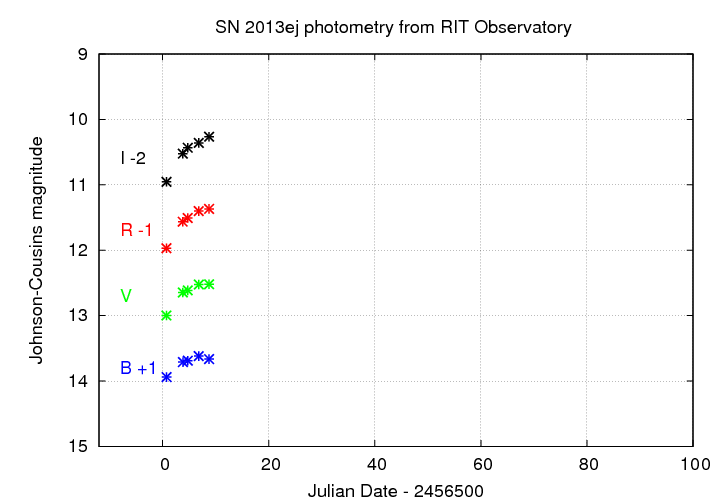
On the night of Aug 03/04, 2013, I observed SN 2013ej in M74.
The main setup was:
Notes from the night
SN 2013ej is a Type II supernova in the relatively nearby galaxy M74. It was discovered by the KAIT group some time (a week?) before maximum light. Here's a chart showing the galaxy, the SN, and some reference stars:

The reference stars marked above have magnitudes in AAVSO chart 12459CA, as follows:
letter B sigB V sigV R sigR I sigI B 13.012 0.019 12.510 0.019 12.154 0.019 11.834 0.019 F 13.848 0.026 13.065 0.022 12.622 0.025 12.152 0.027 H 14.338 0.029 13.692 0.024 13.329 0.029 12.964 0.030 I 14.832 0.027 13.912 0.023 13.416 0.026 12.939 0.030 K 15.192 0.034 14.613 0.027 14.275 0.034 13.915 0.036
I took 30-second guided images -- expect in B-band: the guide star was too faint for the guider to track. I took 6 images in R, 10 images in B, 3 in V, 4 in I. Afterwards, I discarded those images which were trailed or showed a "jump" in the tracking.
Using aperture photometry with a radius of 4 pixels (radius of 7.4 arcsec), I measured the instrumental magnitudes of a number of reference stars and the target. Following the procedures outlined by Kent Honeycutt's article on inhomogeneous ensemble photometry, I used all stars available in each image to define a reference frame, and measured each star against this frame. I used the AAVSO magnitudes, plus color terms which I am currently revising -- so please treat these results as preliminary to convert the ensemble instrumental magnitudes to the standard Johnson-Cousins BVRI scale.
Results from this morning are:
filter mag mag_uncert Julian Date B = 12.665 +/- 0.048 (ens 0.028 zp 0.039) 2456508.75940 V = 12.522 +/- 0.014 (ens 0.006 zp 0.012) 2456508.75270 R = 12.368 +/- 0.030 (ens 0.024 zp 0.018) 2456508.75716 I = 12.264 +/- 0.035 (ens 0.014 zp 0.032) 2456508.76284
The uncertainties here are about equally due to noise in the images and transforming the instrumental magnitudes to the standard scale.
Grab the text file below for all the RIT measurements of SN 2013ej.
It appears that the SN has reached its peak in B and V, but it still rising at longer wavelengths.

Last modified 08/05/2013 by MWR.